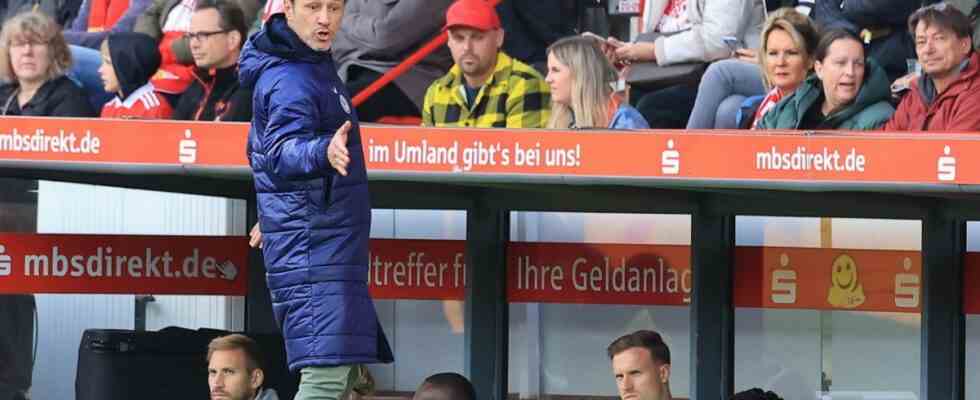From the lowlands of Lower Saxony to the Vorarlberg Ländle, football coaches currently have to deal with teams that just don’t want to obey them. Niko Kovac from VfL Wolfsburg recently said that he was missing “the basics” with his team. The players are “not ready (…) to show passion, camaraderie, the mentality, the sacrifice”. At SCR Altach, Miroslav Klose’s statements sounded very similar: “It’s all clearly agreed, but the boys can’t get it implemented,” he said about the behavior of the defensive. And: “These mistakes and this despondency are difficult for me to accept.”
Kovac, 50, and Klose, 44, are part of a generation of coaches who apparently want to try a very special approach: Public criticism of their own team, sometimes in sharp words, is no longer taboo. And that obviously also applies regardless of table situations and claims: Altach is in the relegation battle in Austria, Wolfsburg is on the way there in the Bundesliga, but in the top flight the trainer statements now sound similar. “We have to use four one-on-one situations against the goalkeeper to win games,” said Julian Nagelsmann recently after the defeat against FC Augsburg, which also implicitly meant: it has to her do it, player, I can’t score from the touchline.
Jupp Heynckes and Hansi Flick also criticized – but consistently internally
This critical approach, which can currently be observed, is noteworthy in that it differs diametrically from the most successful coaches of the past decade. The list of team defenders is long. Jupp Heynckes and Hansi Flick are two FC Bayern coaches who formed such a close unit with their teams because they consistently criticized internally and never externally. At least not in principle the whole team or a whole part of the team.
While Pep Guardiola is generally considered less familiar, he too has become famous for vociferously urging the blame to be pinned on him after defeats: He have to find the solutions, the players can only implement them. And Jürgen Klopp, both in Dortmund and Liverpool, chose the approach of blaming the referee for defeats and crises, the turf, the associations or the god of football. The main thing was that he kept the debates away from his team.
Others prefer to blame the team for a lack of goals and possible lack of effort – and seem so confident in this approach that they stick with it even when they should have realized by now that it wasn’t working. When Niko Kovac said of his Bayern team in October 2019 that “you can’t try to drive 200 km/h on the Autobahn if you can only do 100”, that was the beginning of the end of his tenure in Munich. Shortly afterwards, by the way, his successor Flick easily drove over 200 with the same players.

